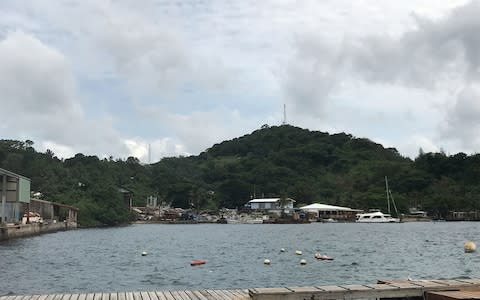Taiwan loses third diplomatic ally this year as El Salvador defects to China

Taiwan lost another ally to Beijing on Tuesday when diplomatic ties with El Salvador were severed, in another political victory for China as it attempts to isolate the self-ruled island on the global stage.
The break with the Central American nation leaves Taiwan now with formal relations with just 17 countries worldwide, many of them poor nations in Central America and the Pacific like Belize and Nauru.
Taiwan’s Foreign Minister Joseph Wu on Tuesday said his government was refusing to compete with China in buying diplomatic support, condemning what he called Beijing’s campaign of luring away Taiwan’s allies with promises of vast financial aid and investment.
“It is irresponsible to engage in financial aid diplomacy or compete with China in cash, or even in providing illegal political money. My government is unwilling to and cannot do so,” he said in comments reported by the AP.
In a separate announcement, Salvador Sanchez Ceren, El Salvador’s president, whose party faces presidential elections in February, announced in a televised speech that the country was switching diplomatic allegiance to Beijing.

El Salvador is the third country to defect to China this year, and the fifth since President Tsai Ing-wen came to office in 2016. It follows Burkina Faso, the Dominican Republic, Sao Tome and Principe and Panama.
China, which claims the island as its own territory, has aggressively tried to lure or pressure Taipei’s diplomatic allies to cut ties since Ms Tsai’s election, suspicious that her government will try to push for formal independence.
Some analysts believe Beijing’s relentless push to isolate Taipei internationally and exclude it from global forums is part of a determined strategy by Xi Jinping, the Chinese president, to bring Taiwan under his control during his tenure.
Taiwan’s population of 23 million meanwhile operates like any other democratic nation with its own elections, government, currency, military and foreign policy and the majority of citizens identify as Taiwanese.
The news broke as President Tsai wrapped up a high-profile trip to Latin America, including stops in the United States that took in an unprecedented visit to Nasa’s space centre in Houston, drawing broad criticism from China.
“Taiwan would not bow to pressure. Pressure would only make us more determined and united. It would only boost our determination to go abroad,” she said as she arrived at Taiwan’s international airport late on Monday after the nine-day trip.

Informally, Taiwan still enjoys strong relations with the US, UK and other Western nations, despite a lack of formal recognition.
However, both China and Taiwan have engaged in chequebook diplomacy in the competition for official allies over the years, with Taipei offering generous aid and economic development packages, and once paying for a Taiwanese chef to cook for the King of Swaziland.
But the island’s recovering economy is now struggling to compete with China’s larger wallet and the considerable political pressure it can exert.
Reports have emerged that tourism on the tiny Pacific island of Palau, one of Taiwan’s allies, has been decimated after Beijing branded it an illegal destination last year and banned tour groups from going there.
Prior to the ban, Chinese tourists accounted for about half the visitors to Palau. Of the 122,000 visitors in 2017, 55,000 were from China and 9,000 from Taiwan, official data showed.
“There is an ongoing discussion about China weaponising tourism,” Jeffrey Barabe, owner of Palau Central Hotel and Palau Carolines Resort in Koror told Reuters. “Some believe that the dollars were allowed to flow in and now they are pulling it back to try and get Palau to establish ties diplomatically.”

 Yahoo News
Yahoo News 
